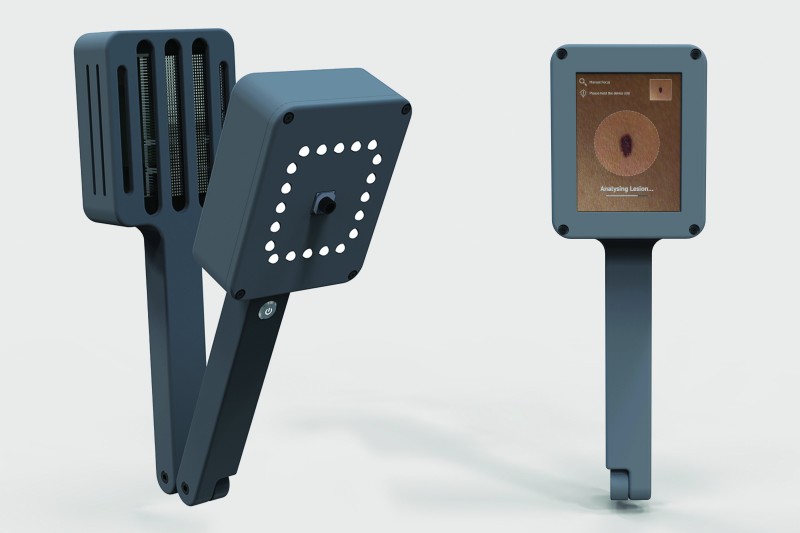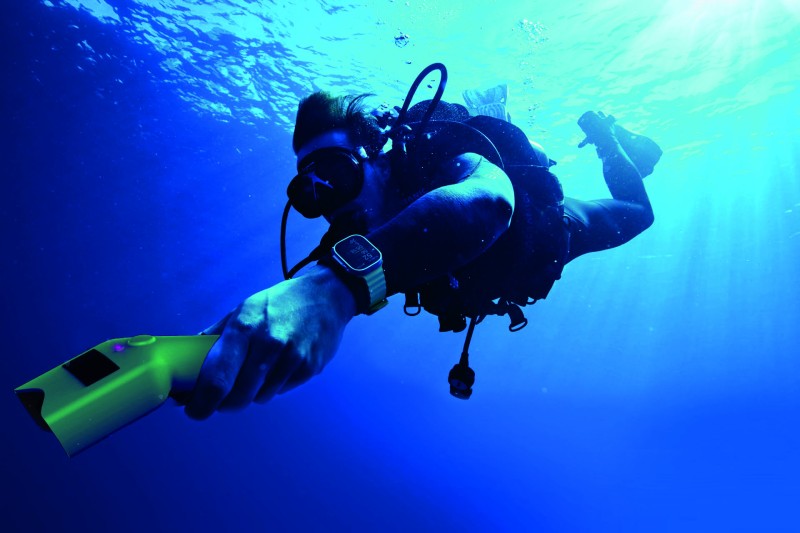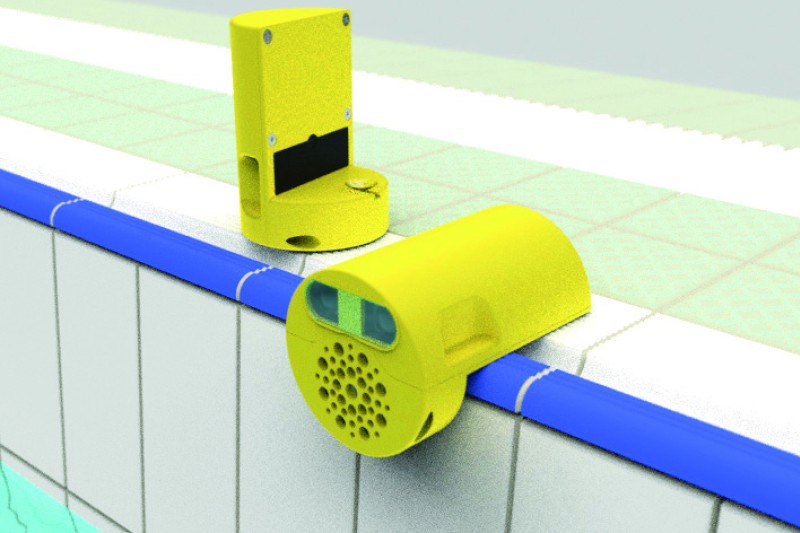Bournemouth University’s engineers and designers find solutions to global issues
A handheld device to speed up diagnosis of skin cancer, an instrument to improve monitoring of water quality in rivers and oceans, and a swimming aid for the visually impaired will be among the creations on display at Bournemouth University’s Festival of Design and Engineering next month.
125 students will be demonstrating their designs and prototypes which they developed for their final year projects. Many of their designs address global issues such as environmental sustainability, improving people’s lives and healthcare.
Design Engineering student Eleanor Webb’s product, SK Insight, uses machine learning technology to carry out a fast assessment of skin lesions. It can then provide advice on when to seek medical attention.
“One in thirty-six men and one in forty-seven women will be diagnosed with melanoma skin cancer in the UK. Early diagnosis is key,” explained Eleanor. “SK-Insight uses twenty LED lights to capture high quality images of someone’s skin lesions. These are then compared to a database of over thirty thousand lesions to produce a predicted diagnosis,” she added.
Product design student Millie Hanlon is hoping to make it easier for scientists and conservationists to monitor the health of the world’s oceans and freshwater habitats. She has developed Ocean-Insight – a handheld device that can measure populations of phytoplankton.
“Phytoplankton produce half of the oxygen in the atmosphere and form the base of almost every food chain,” Millie said. “Without them, sustaining life on Earth would be almost impossible, but alarming estimates reveal a fifty percent decline in their populations over the past 60 years,” she continued.
Monitoring the population changes in phytoplankton is difficult and requires specialist equipment. Ocean-Insight on the other hand can measure this much more quickly.
The product uses violet light to take advantage of the fluorescent properties of a pigment found in plankton called chlorophyll. The light illuminates the chlorophyll which can then be used to measure the density of plankton in the water.
Introduced in 1992, the festival is one of the longest running annual events in our calendar.
Product Design student Robin Boyden will be demonstrating the product he designed to give swimmers with visual impairments more independence in the pool.
“Currently, visually impaired swimmers don’t have a safe, independent way to identify the ends of the pool,” he said. “For decades they have relied on the ‘tapping method’ – where someone taps them as they approach the end of their lane – in training, and all the way to the Paralympics.”
Swim vision works by using an infrared sensor to detect when the swimmer is approaching the end of the pool, it then alerts them via a speaker when they reach a reference point.
Other innovative products on display include:
- A device that cyclists in towns and cities can attach to their bikes which tells them how much air pollution there is around them.
- A routine organiser light, specifically designed to help teenagers with dyspraxia.
- Portable apparatus that can store medicine and keep it refrigerated for use in disaster zones with long periods of power loss.
- A portable menstrual cup cleaner. Making sustainable sanitary products more accessible by allowing them to be discreetly cleaned outside of the home.
- A outside planter for gardeners which also collects rainwater and has a high-pressure pump to connect to a garden hose.
- A clean energy solution to generate power from the river flowing through an old water-mill site.
- Sustainable surfboard design made from biodegradable materials.
The students will hope their innovations can match the success of some of last year’s students, who went on to win nine awards at the New Designers show in London. This includes Ryan Waterhouse who picked up the highest prize for his invention Terra Nova, which aims to improve the world’s soil quality through better monitoring of nutrients.
The free festival is open to the public, local businesses and industry representatives and will take place on our Talbot Campus between 23 and 26 June.


 SK Insight uses LED lights to analyse skin lesions
SK Insight uses LED lights to analyse skin lesions Ocean Insight uses violet light to measure the density of vital phytoplankton
Ocean Insight uses violet light to measure the density of vital phytoplankton Swim Vision lets visually impaired swimmers know when they are approaching the end of their lane
Swim Vision lets visually impaired swimmers know when they are approaching the end of their lane